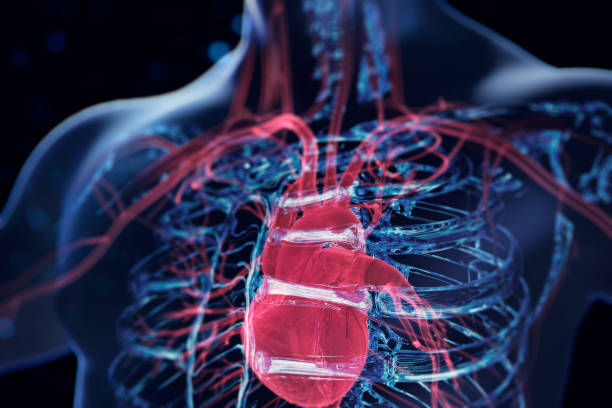Hypertension affects nearly half of all American adults, making it one of the most common health conditions today. This silent killer often strikes without warning, earning its reputation as a stealth threat to cardiovascular health.
Blood pressure represents the force your blood exerts against artery walls as your heart pumps. Normal blood pressure typically measures below 120/80 mmHg, while hypertension begins at readings of 130/80 mmHg or higher.
The condition develops gradually over years, often without noticeable symptoms. Many people remain unaware they have high blood pressure until serious complications arise, including heart disease or stroke.
What Is Hypertension

Hypertension, also known as high blood pressure, is a medical condition where the force of blood pushing against the walls of your arteries is consistently too high.
Types of Hypertension
- Primary (Essential) Hypertension – develops gradually over many years without a clear cause.
- Secondary Hypertension – caused by underlying conditions like kidney disease, thyroid problems, or certain medications.
What Makes Hypertension the Silent Killer
The term “silent killer” perfectly describes hypertension’s stealthy nature and devastating potential. Most individuals experience no obvious symptoms during the early stages of elevated blood pressure.
About 37 million U.S. adults have uncontrolled high blood pressure of 140/90 mmHg or higher. This statistic reveals the widespread nature of undiagnosed and untreated hypertension across the population.
Unlike other conditions that announce themselves through pain or discomfort, high blood pressure quietly damages organs. The heart, kidneys, brain, and eyes suffer progressive damage while patients remain completely unaware.
Current Blood Pressure Categories and Guidelines
Understanding blood pressure classifications helps identify your risk level and treatment needs. Current guidelines define hypertension as systolic blood pressure of 130 mm Hg or above or diastolic blood pressure of 80 mm Hg or above.
Normal blood pressure falls below 120/80 mmHg, providing optimal cardiovascular protection. Elevated blood pressure ranges from 120-129 systolic with diastolic below 80 mmHg.
Stage 1 hypertension occurs when systolic pressure reaches 130-139 or diastolic measures 80-89 mmHg. Stage 2 hypertension involves systolic readings of 140 or higher, or diastolic measurements of 90 or above.
Hypertensive crisis requires immediate medical attention, occurring when blood pressure exceeds 180/120 mmHg. This emergency situation can lead to organ damage within hours if left untreated.
Understanding the Root Causes
Primary hypertension develops without an identifiable underlying cause, affecting approximately 90-95% of all cases. This type typically emerges gradually over decades through complex interactions between genetics and lifestyle factors.
Secondary hypertension results from underlying medical conditions or medications. Kidney disease, sleep apnea, thyroid disorders, and certain medications can trigger elevated blood pressure readings.
Age plays a significant role in hypertension development, with blood vessels naturally stiffening over time. Genetics contribute substantially, as family history increases your likelihood of developing high blood pressure.
Lifestyle factors significantly influence blood pressure levels throughout life. Poor diet, excessive sodium intake, physical inactivity, and chronic stress all contribute to hypertension development.
Risk Factors You Can and Cannot Control
Non-modifiable risk factors include age, gender, race, and family history of cardiovascular disease. Men typically develop hypertension earlier than women, though post-menopausal women face increased risk.
African Americans experience higher rates of hypertension compared to other ethnic groups. They also tend to develop the condition earlier and experience more severe complications.
Modifiable risk factors offer opportunities for prevention and management through lifestyle changes. Maintaining healthy weight, regular exercise, and stress management significantly impact blood pressure levels.
Diet plays a crucial role, particularly sodium intake and overall nutritional quality. Excessive alcohol consumption, smoking, and insufficient sleep also contribute to elevated blood pressure readings.
Just as protecting your assets requires comprehensive planning, similar to understanding boat insurance policy coverage, managing your health requires strategic approaches to prevent hypertension complications.
Recognizing Warning Signs and Symptoms
Most people with hypertension experience no symptoms until complications develop. This absence of warning signs makes regular blood pressure monitoring essential for early detection.
When symptoms occur, they often indicate advanced hypertension or complications. Severe headaches, particularly in the morning, may signal dangerously high blood pressure levels.
Dizziness, blurred vision, and nosebleeds can accompany extremely elevated readings. Chest pain, shortness of breath, and irregular heartbeat require immediate medical evaluation.
Fatigue and confusion sometimes develop with long-standing hypertension. However, these vague symptoms often get attributed to other causes, delaying proper diagnosis and treatment.
Devastating Health Complications
Uncontrolled hypertension damages blood vessels throughout your body, leading to serious health complications. The higher your blood pressure levels, the more risk you have for other health problems, such as heart disease, heart attack, and stroke.
Heart disease represents the most common complication of chronic hypertension. The added strain on your heart could lead to heart failure or other health problems when blood pressure remains unmanaged over time.
Stroke occurs when hypertension damages blood vessels supplying the brain. Hypertension can cause arteries that supply blood and oxygen to the brain, causing a stroke.
Kidney damage develops as high pressure harms delicate filtering units. High blood pressure can constrict and narrow the blood vessels, which eventually damages and weakens them throughout the body, including in the kidneys.
Impact on Your Cardiovascular System
Hypertension forces your heart to work harder, pumping blood against increased resistance. This extra workload causes the heart muscle to thicken and enlarge over time.
Left ventricular hypertrophy occurs when the heart’s main pumping chamber grows larger. While initially compensatory, this adaptation eventually impairs heart function and increases arrhythmia risk.
Coronary artery disease develops as hypertension accelerates atherosclerosis formation. High pressure damages arterial walls, creating sites where cholesterol and other substances accumulate.
Heart failure can result from prolonged hypertension as the overworked heart eventually loses pumping efficiency. This condition significantly impacts quality of life and long-term survival.
Kidney Damage and Chronic Disease
The kidneys contain millions of tiny blood vessels that filter waste from your blood. When those blood vessels become damaged, the kidneys don’t receive the oxygen and nutrients they need to work well.
Chronic kidney disease progresses silently, often undetected until significant function is lost. High blood pressure both causes and results from kidney damage, creating a dangerous cycle.
Proteinuria, or protein in the urine, often signals early kidney damage from hypertension. Regular urine testing can detect this complication before symptoms develop.
End-stage renal disease may require dialysis or kidney transplantation for survival. Prevention through blood pressure control remains the most effective strategy for preserving kidney function.
Brain and Cognitive Effects
Hypertension significantly increases stroke risk through multiple mechanisms affecting brain blood vessels. Small vessel disease can cause silent strokes, leading to gradual cognitive decline.
Vascular dementia results from reduced blood flow to brain tissue over time. This condition affects memory, thinking, and daily functioning capabilities.
Transient ischemic attacks, or mini-strokes, often precede major strokes in people with uncontrolled hypertension. These warning episodes require immediate medical attention and treatment intensification.
Cognitive impairment can develop even without obvious strokes in people with chronic hypertension. Executive function, processing speed, and memory may decline gradually over years.
Eye Complications and Vision Loss
Hypertensive retinopathy occurs when high blood pressure damages retinal blood vessels. Increased blood pressure can cause thickened, narrowed or torn blood vessels in the eyes. This can result in vision loss.
Early retinal changes include arterial narrowing and arteriovenous nicking visible during eye examinations. These findings often precede more serious complications.
Severe hypertensive retinopathy can cause retinal hemorrhages, exudates, and papilledema. Vision loss may be sudden and permanent in advanced cases.
Regular eye examinations help monitor hypertensive changes and guide treatment decisions. Ophthalmologists can detect early vascular damage before symptoms appear.
Diagnostic Methods and Testing
Blood pressure measurement remains the primary diagnostic tool for hypertension detection. The 2024 ESC guidelines place increased emphasis on out-of-office BP measurement in both the diagnosis and subsequent management of elevated BP and hypertension.
Home blood pressure monitoring provides valuable information about average pressure levels. Multiple readings taken over time offer more accurate assessment than single office measurements.
Ambulatory blood pressure monitoring involves wearing a device that measures pressure every 15-30 minutes over 24 hours. This comprehensive approach identifies white coat hypertension and masked hypertension.
Laboratory tests help identify secondary causes and assess organ damage. Blood work typically includes kidney function tests, electrolytes, and cardiovascular risk markers.
Lifestyle Modifications for Management
Dietary changes provide powerful tools for blood pressure reduction without medication. The DASH diet emphasizes fruits, vegetables, whole grains, and low-fat dairy products.
Sodium restriction to less than 2,300 mg daily can significantly lower blood pressure readings. Many processed foods contain hidden sodium, requiring careful label reading and food selection.
Regular physical activity strengthens the heart and improves circulation throughout the body. Aerobic exercise for 30 minutes most days can reduce blood pressure by 4-9 mmHg.
Weight management plays a crucial role, as excess body weight increases cardiovascular workload. Even modest weight loss of 5-10 pounds can produce meaningful blood pressure improvements.
Stress Management and Sleep

Chronic stress contributes to hypertension through multiple pathways affecting hormonal and nervous system function. Effective stress management techniques include meditation, deep breathing, and regular relaxation practices.
Sleep quality directly impacts blood pressure regulation through complex hormonal mechanisms. Sleep apnea, characterized by breathing interruptions during sleep, strongly associates with hypertension development.
Aim for 7-9 hours of quality sleep nightly to support optimal blood pressure control. Sleep hygiene practices include consistent bedtimes, comfortable environments, and avoiding screens before sleep.
Stress reduction techniques should be practiced regularly, not just during high-stress periods. Consistency in stress management provides cumulative benefits for blood pressure control.
Medical Treatment Options
Antihypertensive medications offer effective blood pressure control when lifestyle modifications prove insufficient. Several drug classes work through different mechanisms to lower pressure.
ACE inhibitors block enzymes that narrow blood vessels, allowing easier blood flow. These medications also provide additional cardiovascular and kidney protection benefits.
Calcium channel blockers prevent calcium from entering heart and blood vessel cells. This action relaxes blood vessels and reduces heart rate, lowering overall pressure.
Diuretics help kidneys eliminate excess sodium and water, reducing blood volume. These “water pills” often serve as first-line therapy for hypertension management.
Creating Your Management Plan
Successful hypertension management requires comprehensive planning and consistent implementation. Work with healthcare providers to develop individualized treatment strategies addressing your specific needs and risk factors.
Regular monitoring helps track progress and identify necessary treatment adjustments. Home blood pressure logs provide valuable data for medical decision-making.
Medication adherence remains crucial for achieving target blood pressure levels. Set reminders, use pill organizers, and communicate with providers about side effects or concerns.
Lifestyle modifications should complement, not replace, prescribed medications when both are necessary. The combination approach typically produces superior results compared to either strategy alone.
Similar to how comprehensive planning protects property investments through home title insurance, developing a thorough hypertension management plan protects your long-term health and well-being.
Prevention Strategies for Healthy Individuals

Primary prevention focuses on maintaining normal blood pressure throughout life. Early adoption of healthy lifestyle habits provides the strongest foundation for cardiovascular health.
Regular blood pressure screening enables early detection and intervention before complications develop. Annual checks suffice for low-risk individuals, while high-risk people need more frequent monitoring.
Maintain healthy body weight through balanced nutrition and regular physical activity. Prevent weight gain during middle age when metabolism naturally slows.
Limit alcohol consumption to moderate levels, defined as one drink daily for women and two for men. Excessive alcohol intake directly raises blood pressure levels.
Building Long Term Success
Long-term hypertension management requires sustained commitment to healthy lifestyle choices and medical treatment. Success depends on viewing blood pressure control as a lifelong priority, not a short-term goal.
Regular healthcare visits allow for monitoring, medication adjustments, and early complication detection. Establish relationships with providers who understand your individual needs and preferences.
Education about hypertension empowers you to make informed decisions about treatment options. Understanding your condition motivates adherence to recommended interventions.
Support systems including family, friends, and healthcare teams improve long-term success rates. Share your goals and challenges with people who can provide encouragement and accountability.
Just as successful entrepreneurs need comprehensive guidance, like learning how to write a business plan complete guide, managing hypertension effectively requires detailed planning and consistent execution of your health strategy.
Conclusion
Hypertension truly earns its reputation as the silent killer, affecting millions while often remaining undetected until serious complications arise. Understanding this condition empowers you to take proactive steps toward prevention and management.
Regular blood pressure monitoring, lifestyle modifications, and appropriate medical treatment can effectively control hypertension and prevent devastating complications. The key lies in early detection, consistent management, and long-term commitment to healthy choices.
Remember that hypertension management is a marathon, not a sprint. Small, consistent changes in diet, exercise, stress management, and medication adherence produce significant long-term benefits for cardiovascular health.
Take action today by scheduling a blood pressure check, implementing heart-healthy lifestyle changes, and discussing your risk factors with healthcare providers. Your future self will thank you for the investment in cardiovascular health you make today.
Frequently Asked Questions
What is considered high blood pressure? High blood pressure, or hypertension, is defined as readings of 130/80 mmHg or higher. Normal blood pressure measures below 120/80 mmHg, while elevated readings fall between 120-129 systolic with diastolic below 80.
Can hypertension be cured completely? Hypertension typically cannot be cured, but it can be effectively controlled through lifestyle modifications and medications. Primary hypertension is a chronic condition requiring lifelong management, while some cases of secondary hypertension may resolve when underlying causes are treated.
How often should I check my blood pressure? Adults should have blood pressure checked at least annually during routine healthcare visits. Those with elevated readings, family history, or other risk factors may need more frequent monitoring. Daily home monitoring helps track treatment effectiveness.
What foods should I avoid with high blood pressure? Limit high-sodium foods including processed meats, canned soups, restaurant meals, and packaged snacks. Reduce saturated fats, excess sugar, and alcohol consumption. Focus on fresh fruits, vegetables, whole grains, and lean proteins instead.
Can stress cause permanent high blood pressure? Chronic stress contributes to hypertension development and can worsen existing high blood pressure. While temporary stress causes short-term spikes, ongoing stress may lead to sustained elevation. Effective stress management helps maintain healthier blood pressure levels.
Is it safe to exercise with high blood pressure? Regular exercise benefits most people with hypertension, but consult your doctor before starting new activities. Moderate aerobic exercise typically lowers blood pressure over time. Avoid heavy weightlifting or activities that cause extreme exertion without medical approval.
What happens if hypertension goes untreated? Untreated hypertension can cause heart attack, stroke, heart failure, kidney disease, and vision problems. The condition progressively damages blood vessels throughout the body, leading to life-threatening complications. Early treatment prevents most serious outcomes.
Can young people develop high blood pressure? Yes, hypertension can affect people of all ages, including children and young adults. Risk factors include obesity, family history, kidney disease, and lifestyle factors. Regular screening helps detect elevated blood pressure early in life.
How quickly can blood pressure be lowered? Blood pressure can begin improving within days of lifestyle changes, though medications may take weeks to show full effects. Sustainable reduction typically occurs over months with consistent healthy habits. Emergency situations may require immediate medical intervention.
Does family history guarantee I’ll develop hypertension? Family history increases your risk but doesn’t guarantee you’ll develop high blood pressure. Genetics contribute approximately 30-50% of hypertension risk, while lifestyle factors significantly influence whether you actually develop the condition. Healthy choices can often prevent or delay onset.